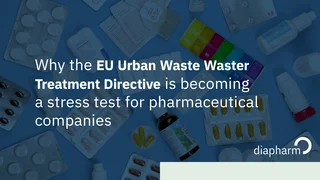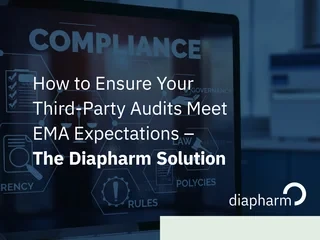The EU Urban Waste Water Directive (UWWTD) is sparking significant debate across Europe, especially within the pharmaceutical industry. With its proposal to revise Directive 91/271/EWG, European Commission laid the groundwork for a more ambitious European water policy in 2022. The next step is to transpose the directive into national law by 2027.
Extended producer responsibility for an additional treatment stage increases regulatory burden
A central aspect of the reform is the extended producer responsibility (Extended Producer Responsibility, EPR). EPR will require cities and municipalities to implement a fourth treatment stage at wastewater treatment plants to efficiently remove residues of human and veterinary pharmaceuticals as well as cosmetics from wastewater. According to the government’s current proposal, manufacturers of these affected products will bear a significant portion of the resulting investment and operating costs. For the pharmaceutical industry, this represents a major additional burden — financially, administratively, and strategically. In addition to new reporting requirements, there will be increased regulatory demands within European Union (EU). This could have a direct impact on production decisions, supply chain stability, and ultimately, pricing. For many companies, the competitiveness of the European pharmaceutical sector is also at stake.
Contradiction at the European level
This development stands in striking contrast to the concurrently initiated Critical Medicines Act (CMA) at the European level. The CMA aims to strengthen the security of supply for essential medicines and reduce reliance on third countries by supporting European manufacturing sites and expanding production capacities. While CMA provides incentives for increased production, KARL imposes new costs and bureaucratic hurdles. This lack of coherence undermines the industrial and health policy objectives of EU.
Diapharm advocates for a strong Europe with clear framework conditions
Diapharm is committed to establishing Europe as an attractive location for pharmaceutical companies. Diapharm actively supports companies in building and securing their presence in Europe. A strong European pharmaceutical sector requires clear, predictable, and coherent framework conditions — not conflicting signals.
Hope for a change in policy: Industry criticism is having an impact
In light of growing criticism from the pharmaceutical industry, EU-Commission is, for the first time, showing openness to a reassessment. As part of the Water Resilience Strategy presented on June 4, 2025, they announced that they would once again review the costs and impacts of EPR on the affected sectors — pharmaceuticals and cosmetics.
In a press release, the association Pharma Deutschland e.V. emphasized that the previous cost and impact estimates contained numerous methodological flaws. As early as May, Europäische Parlament had called on the Commission in an own-initiative report to reassess the economic consequences of the directive for the supply of medicines. A second report by the consulting firm Ramboll backed up the criticism of the initial impact assessment and identified significant methodological weaknesses. Jörg Wieczorek, CEO of Pharma Deutschland, stated: "There is not much time left to contain the serious consequences of the directive. We therefore urge Commission to present the study quickly and to amend the directive accordingly." As a result, Pharma Deutschland called on Conference of health ministers in an open letter dated June 10 to advocate for a revision of the UWWTD, especially with regard to the security of supply and the competitiveness of the national pharmaceutical sector.
What pharmaceutical companies need to do
The Commission’s announcement to review the existing strategy is a political signal. It shows that economic, supply, and environmental objectives must be brought into a balanced relationship. Pharmaceutical companies should closely monitor ongoing political developments, analyze their internal product portfolios for environmentally relevant substances, and proactively prepare for potential participation models (cost sharing, take-back systems, transparency requirements).
Diapharm will also remain vigilant and will be able to respond to and support any new requirements with the necessary expertise.


